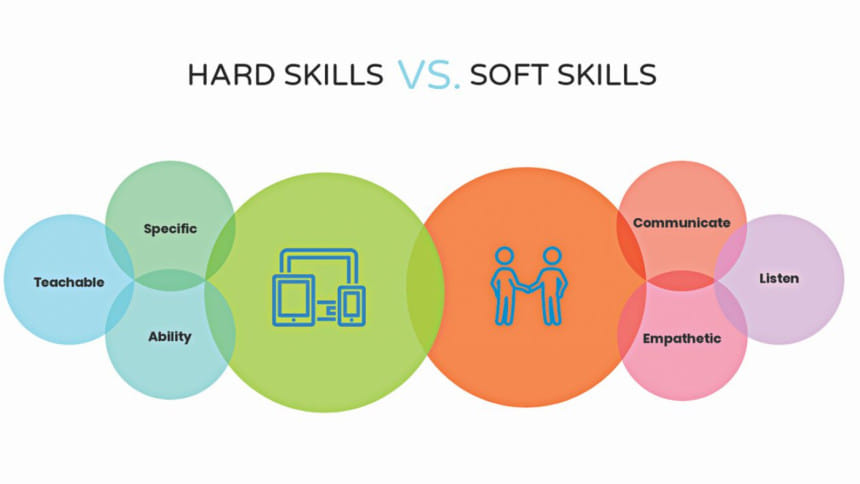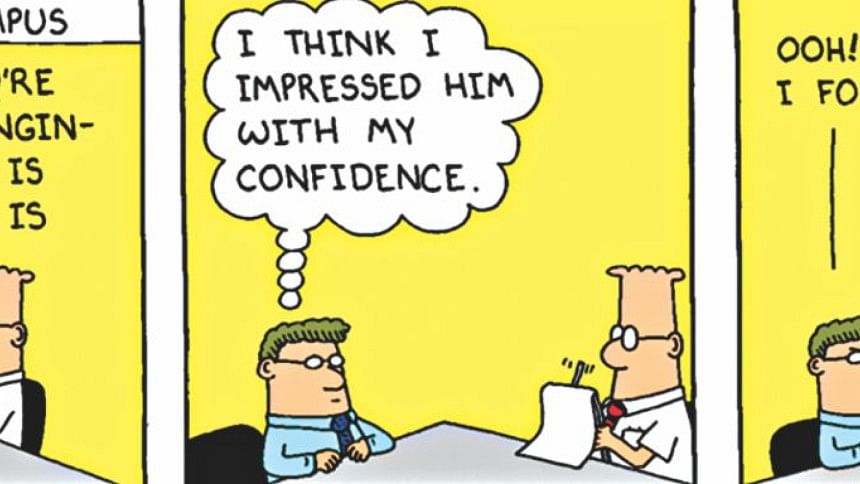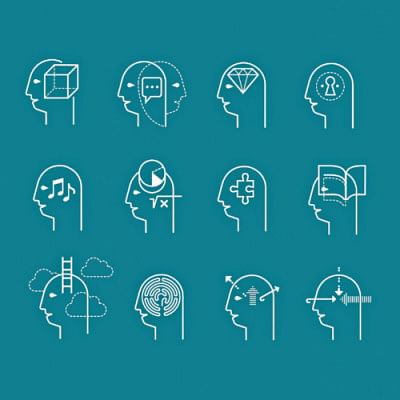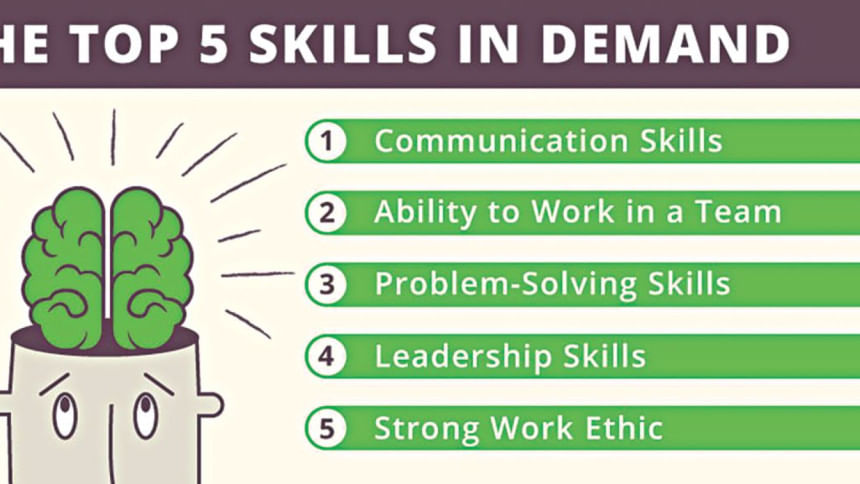The importance of having soft skills in early career

The types of skillsets mentioned here serve to accomplish the same goal. But as you can already tell, they are vastly different. Not only do these differ in nature, but they're also different in the methods that are used to develop them.
The first set of skills – the kicking and passing – are about precision. It's about how precisely you can follow certain mechanics that lead to the desired outcome. Getting good at these skills are all about perfecting the technique.
On the other hand, the second set mentioned are about judgement, decision-making, and flexibility. There are no specific techniques you must stick to in order to get desired results. You get better at these skills not by perfecting techniques, but rather by improving your understanding of how the game is played, understanding other people, and being in certain situations over and over again.
The skills that require technique and precision are known as "hard skills". Skills like dribbling and kicking in football, playing a complex note on the guitar, solving basic math problems, writing code etc. are examples of hard skills. And the second set of skills, which are more about judgement and understanding are called "soft skills". Composing music to highlight certain emotions, reading a room during a tense meeting, and spotting a hidden trade opportunity in the stock market are some examples of soft skills.

There are certain soft skills that have applications across almost every single career field and even in the personal lives of people. Examples of such skills include leadership, communication, critical thinking, emotional intelligence, etc. When people talk about soft skills, they usually mean this specific set of skills. And these universally applicable soft skills are the main topic of this article.
If we're going to talk about the importance of soft skills, I'm sure the first line of the previous paragraph says it out loud. No matter what career you choose or what hobby or passion you have that you want to be successful in, there will always be applications for soft skills. Enhancing skills such as communication and emotional intelligence go beyond any professional pursuits to have positive effects on your personal life as well.

All of you are probably aware of just how necessary these skills are and know you should work to improve them. But the problem is, most people view working on them as vague life advice rather than an actual skill that they can actively try to improve on by taking consistent, measurable actions.
One of the most popular pieces of career advice-related sayings is "It's not what you know, it's who you know." For sure, nobody will deny that networking is a critical element of being successful in one's career. However, very few people actually treat it as something more than just being social and exchanging contact information with new people. A lot of defined and well-established concepts and methods exist that go into building a strong network. A network that has people you are not only acquainted with but also have good professional relationships with will be beneficial to you down the line. Furthermore, it's not enough to just learn and know about these concepts; consistent action must also be taken to apply them and to build the required habits, as networking is after all a skill.
A lot of people get good at soft skills by naturally being put into environments that require them to practice these skills consistently. For example, say a young boy is appointed as the captain of his school's cricket team. This, in turn, leads him to consistently make an effort to lead, motivate, and manage the team's other players. After being in this role for a couple of years, he will likely have developed leadership skills that will aid him in a variety of scenarios later in his life. Similarly, a young girl who has to shift schools every year because of her father's frequent job transfers might be forced to mix with and develop friendships with different groups of people each year to fulfil her social needs. If a few years went by like this, she will likely develop strong people and networking skills that will serve her all throughout her career.
There are a few issues with learning soft skills in this manner. The very obvious one is that it is totally random and people have little or no conscious awareness or control over what skills they develop. Not only that, but the same environment might have completely different effects on different people. In the second example, the girl could have also resorted to burying herself in books and TV shows to cope up with the lack of a consistent friend circle instead. This, in turn, would have had a different effect on her networking skills.

So it's best to treat soft skills just like any other skill and make an effort to learn what makes you get good and then applying the learned concepts over and over again. And just like how there are training facilities for programming or music, there also are training facilities for skills like communication, leadership, and critical thinking. There are several organisations that host events that range from one-day workshops to three-month long interactive programmes to help people develop these skills so they can lead better and more successful lives.
One such organisation is the Bangladesh Youth Leadership Center (BYLC). BYLC aims to make the youth of our country capable of having an impact in combating various socio-political and economic issues.
Ramisa Salim, a graduate of BYLC's popular Building Bridges through Leadership Training (BBLT) programme explained her intention to join the course. She said, "I wanted to learn the skills that allowed me to reach out to more people, to make a difference in their lives, and be an integral part of their self-development."
BYLC arranges workshops and programmes that help its participants develop soft skills associated with leadership. They do this by a range of different methods such as imparting related knowledge in classrooms, simulating problem-solving scenarios, having the participants practice specific skills like public speaking, even actually having them go out into the real world to launch a venture that solves a social problem. They also have online resources for enthusiastic individuals.

As important as soft skills are to face real-world challenges in both professional and personal lives, educational institutes often fail to instil these required skills among its students. And solving this exact issue is the goal of Mind Mechanics Academy. This organisation specialises in soft skills training and arranges workshops throughout the year. These workshops feature teachings and interactive activities that give the participants a roadmap to master the essential skills.
Aseer Iqbal, a young entrepreneur who attended one of Mind Mechanics Academy's workshops on communication skills said, "I never noticed a lot of subtle things that matter in human communication before doing some of the exercises and drills at this event. Definitely an eye-opener."
So far, they've arranged several workshops on communication skills, decision-making, emotional intelligence, presentation skills, cultural intelligence, teamwork, critical thinking etc. and are continuously introducing different topics to their workshops.
School of Career Development is another organisation that seeks to provide training for essential workplace skills. They provide a variety of services and training for career development ranging from basic technical skills related to Microsoft Office to specialised soft skills training and corporate boot camps. Although their programmes are more workplace and corporate-focused, individuals can participate in them to take away knowledge and guidelines to enhance their own abilities.

Training in various soft skills are provided by many other organisations as well, often as a part of a larger project. You just have to keep your eyes out for those. Also, making an effort to improve your soft skills doesn't mean you have to attend a training programme. There are limitless resources both online and offline in the form of books, articles, and digital courses that anyone can access and learn from. Then, you can simply seek out ways of implementing this knowlede that are relevant to your life. This could mean joining one of your university clubs to work on teamwork and communication, picking up extracurricular activities that let you work on critical thinking and problem-solving or simply developing a habit to take charge and be more assertive in your daily life situations in order to enhance your leadership abilities.
Mushfiqur Rahman Shanto is a lost and confused soul going through his early twenties' crisis. Send him life advice at [email protected]





Comments